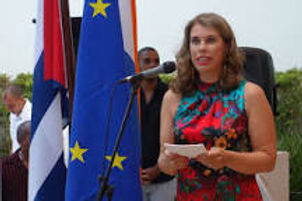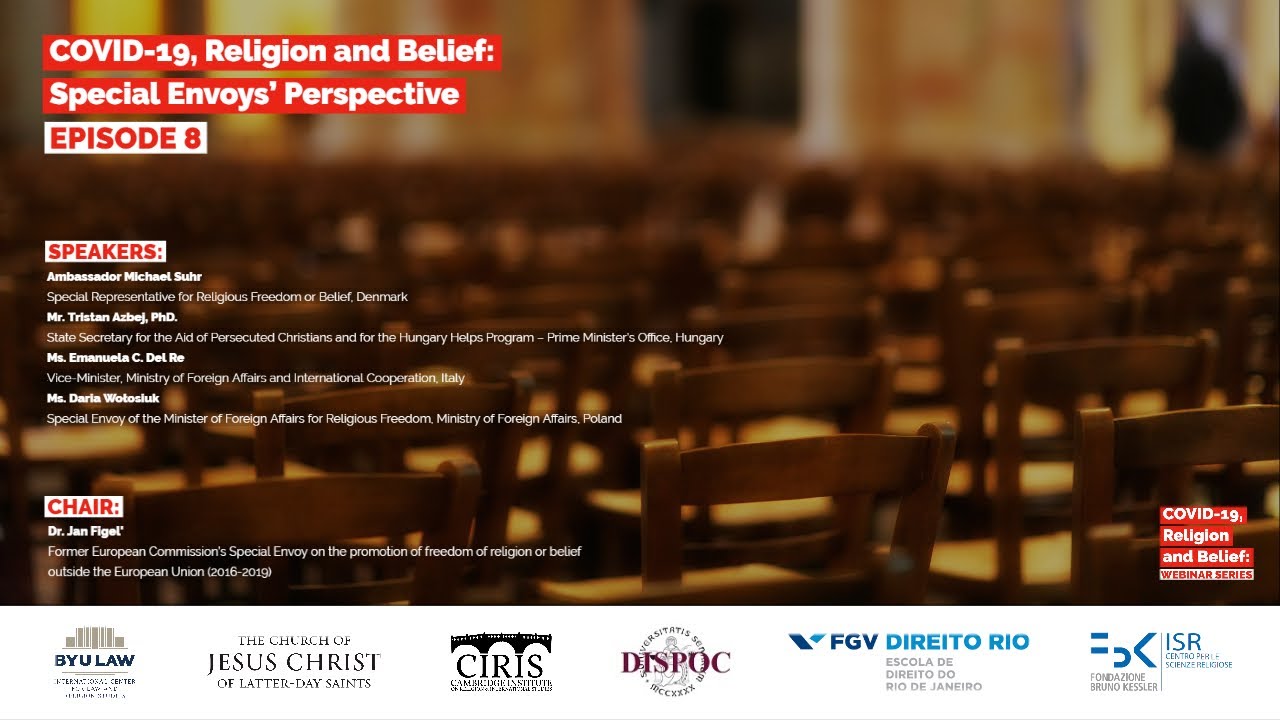Interview avec Ján Figel’, ancien envoyé spécial de l’Union européenne pour la liberté de religion
Pour la deuxième fois depuis son introduction en 2019 par les Nations unies, la « Journée internationale pour les minorités religieuses victimes de violences » a été célébrée le 22 août. Le bilan sur la situation des personnes persécutées dans le monde entier en raison de leur religion est loin d’être positif. L’œuvre internationale de bienfaisance catholique L’Aide à l’Église en Détresse (AED) s’est entretenue avec l’homme politique slovaque Ján Figel’, dont le mandat de délégué spécial de l’UE pour la liberté de religion a récemment pris fin.
Attention: la traduction française n’a pas été corrigée
Que pensez-vous de la Journée internationale pour les victimes de violences en raison de leur religion ?
La Journée internationale pour les victimes de la persécution religieuse est d’une grande importance dans le calendrier des commémorations internationales parce que ces victimes de persécution religieuse sont nombreuses, elles se chiffrent par centaines de millions de personnes. La persécution en raison de la religion augmente dans le monde et beaucoup de millions d’autres personnes sont discriminées pour cela. Il est extrêmement douloureux qu’aujourd’hui encore, il y ait en ce monde des victimes de véritables génocides. Par le passé, la liberté de culte avait souvent été négligée, ignorée ou à peine considérée dans les accords internationaux, mais de nos jours, la liberté de religion et de culte représente l’épreuve décisive pour l’état véritable des droits de l’être humain.
Quelle pourrait être la meilleure manière de commémorer cette journée ?
Les témoignages de survivants de persécutions religieuses sont extrêmement importants. Des manifestations, des conférences, des séances en lignes, des séminaires et des webinaires ont été organisés. Tous ces événements devaient servir en premier lieu à aiguiser notre conscience de l’importance de la liberté de culte pour tous les êtres humains et de nous souvenir des victimes de la persécution religieuse. Car ceux qui perdent la mémoire perdent aussi leur identité et leur orientation. Ensuite, il est primordial de ce concentrer sur une éducation prônant la coexistence dans la diversité, car vivre ensemble représente tellement plus que d’exister côte à côte. Et enfin, les États et les autorités nationales doivent promouvoir la justice et l’équité pour tous, qui engendrent la paix. Les mêmes droits civiques pour tous, par exemple, sont une expression formidable d’égalité pour tous, autant pour la majorité de la société que pour les minorités.
Quelles sont les expériences que vous avez vécues lors de votre jeunesse dans un pays communiste, sous le régime soviétique de l’ancienne Tchécoslovaquie ?
J’ai passé la moitié ma vie sans être libre. C’était vraiment une situation inhumaine et des temps très difficiles. Je m’appelle Ján Figel’ comme mon oncle, le frère de mon père. Dans les années 1950,il a été assassiné par les services secrets de l’ancien État staliniste qu’était la Tchécoslovaquie. La liberté est une forme d’expression de la dignité humaine, et celle-ci constitue le fondement de tous les droits de l’homme. Renier la liberté de l’être humain revient donc à renier la dignité humaine.
Pourquoi est-il important de protéger la liberté de religion ?
La liberté de religion et de culte marque le degré de liberté le plus élevé. Elle est définie comme liberté de religion, de culte et de conscience. Elle est donc d’égale importance autant pour les croyants que pour les non-croyants. C’est un droit humain central et un droit de grande envergure, puisqu’il est lié à la liberté d’expression, la liberté d’opinion, de réunion et de rassemblement. Si la liberté de religion est supprimée, d’autres droits et libertés seront également supprimés. Voilà pourquoi nous devons plus que jamais veiller à protéger la liberté de religion, pas seulement parce qu’elle touche aussi d’autres droits fondamentaux, mais parce qu’elle constitue le test décisif pour tous les autres droits de l’être humain.
Comment pouvons-nous protéger la liberté de religion et les êtres humains qui sont persécutés à cause de leur foi ?
C’est notre devoir de protéger les victimes de la persécution. Il est de notre responsabilité humaine, mais c’est aussi dans l’intérêt fondamental de tous. Nous devons mieux prendre conscience de l’importance de la liberté de religion. Les médias devraient consacrer beaucoup plus d’informations à ces situations et thématiques. Il est de notre responsabilité de donner une voix à tous ceux qui n’en ont pas et ne peuvent pas se défendre. Je souhaiterais en appeler à la communauté internationale : Le monde a besoin aujourd’hui d’un « changement climatique » des questions autour de la liberté de religion, car la situation se présente très négative et empreinte de souffrances. Dans le monde entier, des millions de personnes souffrent de la persécution religieuse, et la tendance est très inquiétante. Ces deux faits gravissimes devraient éveiller au sein de la communauté internationale une plus grande conscience du respect de la liberté de religion et de la nécessité de défendre la dignité humaine pour tous les êtres humains, dans le monde entier.
Interview avec Ján Figel’, 31.08.2020 / Journée internationale pour les minorités religieuses victimes de violences par Josué Villalón


